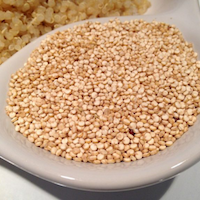Microbiome and Nutrition
The complex community of bacteria, yeasts and viruses living in our intestines, collectively known as the gut microbiome, is shaped, in part, by what we eat. Genetics, environment, and other factors also influence an individual’s microbial community. Research at the NRI investigates these complex relationships and their impact on disease risk. We use animal models and bioinformatics to study the associations between nutritional metabolites, gut microbiome, and health. What happens in the gut doesn’t stay in the gut. Your microbiome can play a role in cardiovascular disease, obesity and diabetes, and even cancer. Our team envisions a future where analysis of your microbiome can determine disease risk, and medical foods can be prescribed to treat and prevent disease by regulating the microbiome.
Publications
Microbiome and Nutrition Publications
2020
Population studies of TMAO and its precursors may help elucidate mechanisms. Meyer K
2019
Association of dietary patterns with the gut microbiota in older, community-dwelling men. Meyer K
2018
Meta-analysis of human genome-microbiome association studies: the MiBioGen consortium initiative. Meyer K
Human microbiota, blood group antigens, and disease. Sumner S
2017
Trimethylamine N-Oxide, the Microbiome, and Heart and Kidney Disease. Zeisel S
2016
Diet and Gut Microbial Function in Metabolic and Cardiovascular Disease Risk. Meyer K
Antibiotic-mediated gut microbiome perturbation accelerates development of type 1 diabetes in mice. Sumner S
Related News
January 2018
Quinoa Compounds Slow Aging, Improve Metabolic Health in Animal Study December 27, 2017 – In a collaboration between Rutgers University and the N.C. State University Plants for Human Health Institute (PHHI) at the NC Research Campus (NCRC), scientists used an animal...
Caramelized Pear, Roasted Tomato and Lentil Salad
December 29, 2017 – This fresh New Year salad combines the natural sweetness of caramelized pear and roasted tomato, with earthy lentils and tender butter lettuce. Finished with lemon zest, olive oil and balsamic vinegar, this elegant salad lends starts the New Year off on a healthy note.
Quinoa Compounds Slow Aging, Improve Metabolic Health in Animal Study
December 27, 2017 – In a collaboration between Rutgers University and the N.C. State University Plants for Human Health Institute (PHHI) at the NC Research Campus (NCRC), scientists used an animal model to show for the first time that quinoa phytochemicals, such as ecdysteroids, may slow the effects of aging and improve metabolic health. Their study was published in the October 2017 edition of the Journal of Functional Foods.
Quinoa Breakfast Bars with Blueberries
December 29, 2017 – A great recipe to get your day started!
December 2017
Choline: The essential but forgotten nutrient November 27, 2017 – Perhaps it’s because you don’t see it on nutrition labels yet, but choline — an essential nutrient from conception through old age — tends to be tragically overlooked. According to data from the...
Choline: The essential but forgotten nutrient
November 27, 2017 – Perhaps it’s because you don’t see it on nutrition labels yet, but choline — an essential nutrient from conception through old age — tends to be tragically overlooked. According to data from the National Health and Nutrition Examination Survey, only 1 in 10 of us get enough choline, and those percentages drop among women during pregnancy — right when they need it most.



